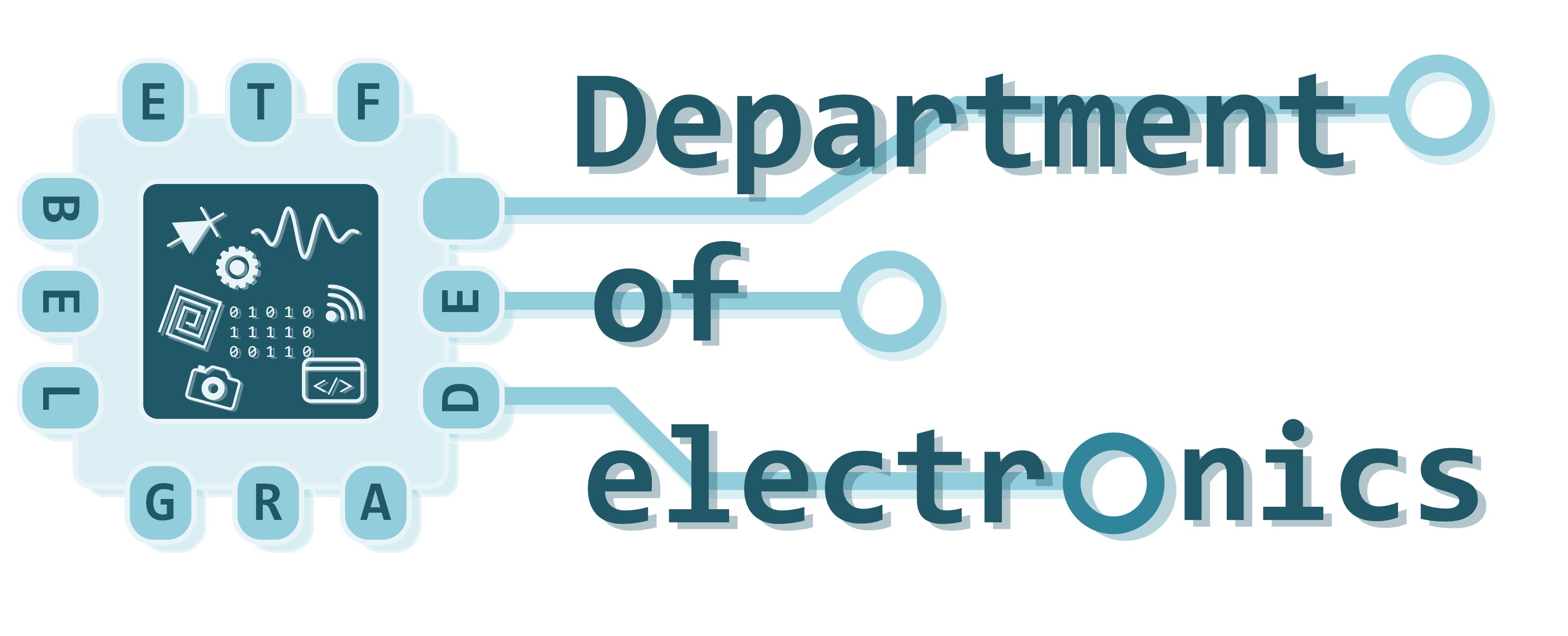
.
SPARC
Research group for Signal Processing Algorithms and Architectures (SPARC) is situated at the University of Belgrade - School of Electrical Engineering (ETF), at the Department of electronics. Our research focuses on the design of signal processing algorithms and efficient hardware architectures. We develop energy, resource-utilization, and cost efficient solutions applicable in digital signal processing, digital image processing, channel coding, communication systems, machine learning, and biomedical systems.
We welcome you to our website and invite you to explore our projects and research!
.
NEWS

Dec. 31, 2021

Oct. 14, 2021
PEOPLE

Lazar Saranovac
Professor
Born in Sremska Mitrovica, Serbia, in 1961. Received the B.S. degree in electrical engineering and the M.S. and Ph.D. degrees in electronics from the University of Belgrade, Serbia, in 1987, 1993, and 2001, respectively. His research interests include embedded systems, digital signal processing, and design of digital systems.

Dragomir El Mezeni
Assistant Professor
Born in Belgrade, Serbia, in 1985. Received the B.S. degree in electrical engineering and the M.S. and Ph.D. degrees in electronics from the University of Belgrade, Serbia, in 2008, 2010, and 2018, respectively. His research interests include digital image/video processing, computational photography, and very large scale integration architectures for digital signal processing.

Vladimir Petrović
Assistant Professor
Received the Dipl.-Ing., M.S., and Ph.D. degrees in electrical engineering from the University of Belgrade, Serbia, in 2014, 2015, and 2021, respectively. His research interests include VLSI design, communication systems architectures, digital signal processing, and hardware implementations of signal processing algorithms.
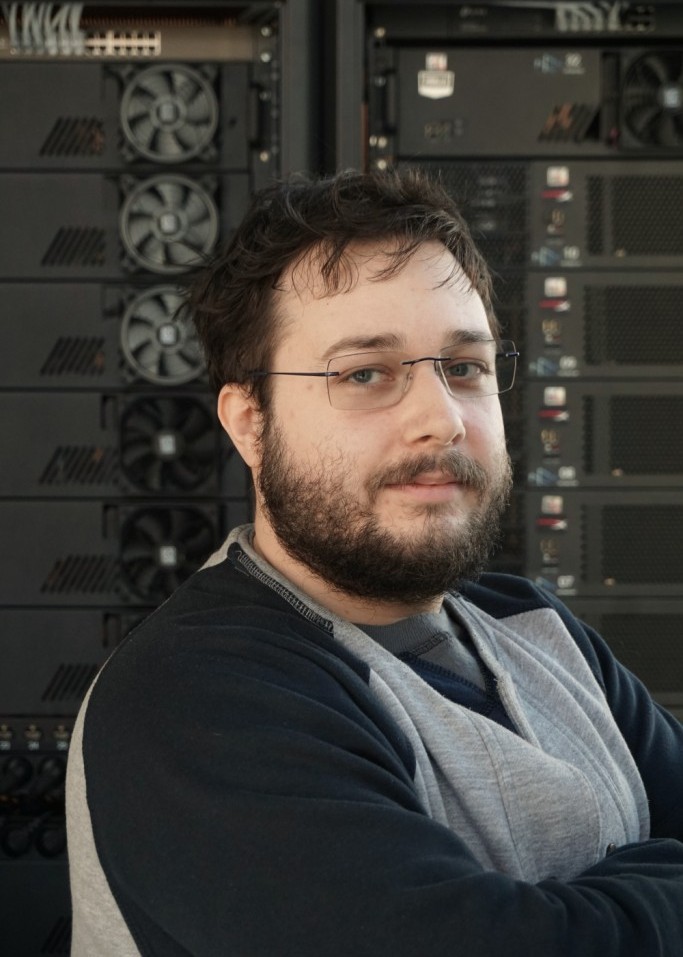
Nemanja Filipović
Ph.D. Student
Received the Dipl. Ing. and M.S. degrees in electrical engineering from the University of Belgrade, Serbia, in 2019 and 2020, respectively. He is currently a Ph.D. student at the same university. In 2018 he joined Tannera LLC, where he works as a hardware engineer. His research interests include VLSI design, communication systems architectures, digital signal processing, and hardware implementations of signal processing algorithms.

Živana Garašević
Ph.D. Student, Research Assistant
Received the Dipl. Ing. and M.S. degrees in electrical engineering from the University of Belgrade, Serbia, in 2020 and 2022, respectively. She enrolled the Ph.D. studies at the same university in 2022. Her research interests include LDPC coding, VLSI design, and hardware implementations of signal processing algorithms.

Nikola Borović
Ph.D. Student, Research Assistant
Received the Dipl. Ing. and M.Sc. degrees in electrical engineering from the University of Belgrade, Serbia, in 2022 and 2023, respectively. He is currently a Ph.D. student at the same university. His research interests include polar coding, VLSI design, and hardware implementations of signal processing algorithms.

Danilo Đokić
Ph.D. Student, Teaching & Research Assistant
Received the Dipl. Ing. and M.Sc. degrees in electrical and computer engineering, in 2016 and 2021, respectively, from the School of Electrical Engineering, University of Belgrade, Serbia where he is currently working toward the Ph.D. degree. He is also Teaching Assistant at the same department. His research interests include signal processing, RF and FPGA design.
PROJECTS
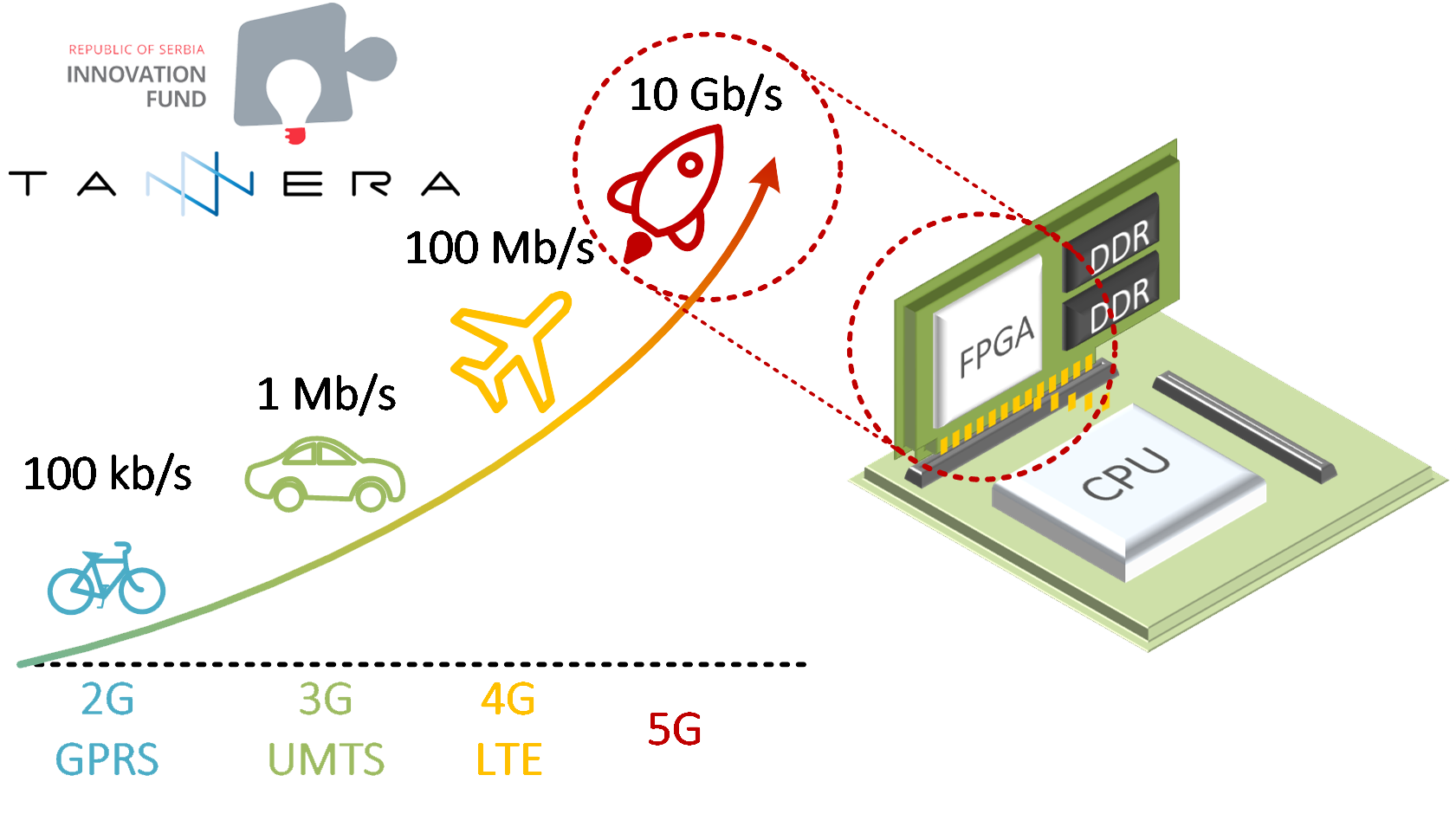
Accelerate 5G
Funded by: Innovation Fund, Tannera
Start date: Mar. 2022
Project leads: dr. Vladimir Petrović and dr. Dragomir El Mezeni, SPARC group
LEAD TEAMAccelerate 5G: Hardware accelerator IP cores for 5G infrastructure is a project whose objective is to develop a full cost-efficient product of an end-to-end FPGA based accelerator for physical layer processing in 5G base stations. The focus is on workloads placed at the distributing units, which include compute intensive tasks, such as forward error correction, modulation, and channel equalization. The product will be in the form of IP cores that can be deployed to any FPGA acceleration card. Acceleration will significantly reduce the total cost of ownership for 5G infrastructure.
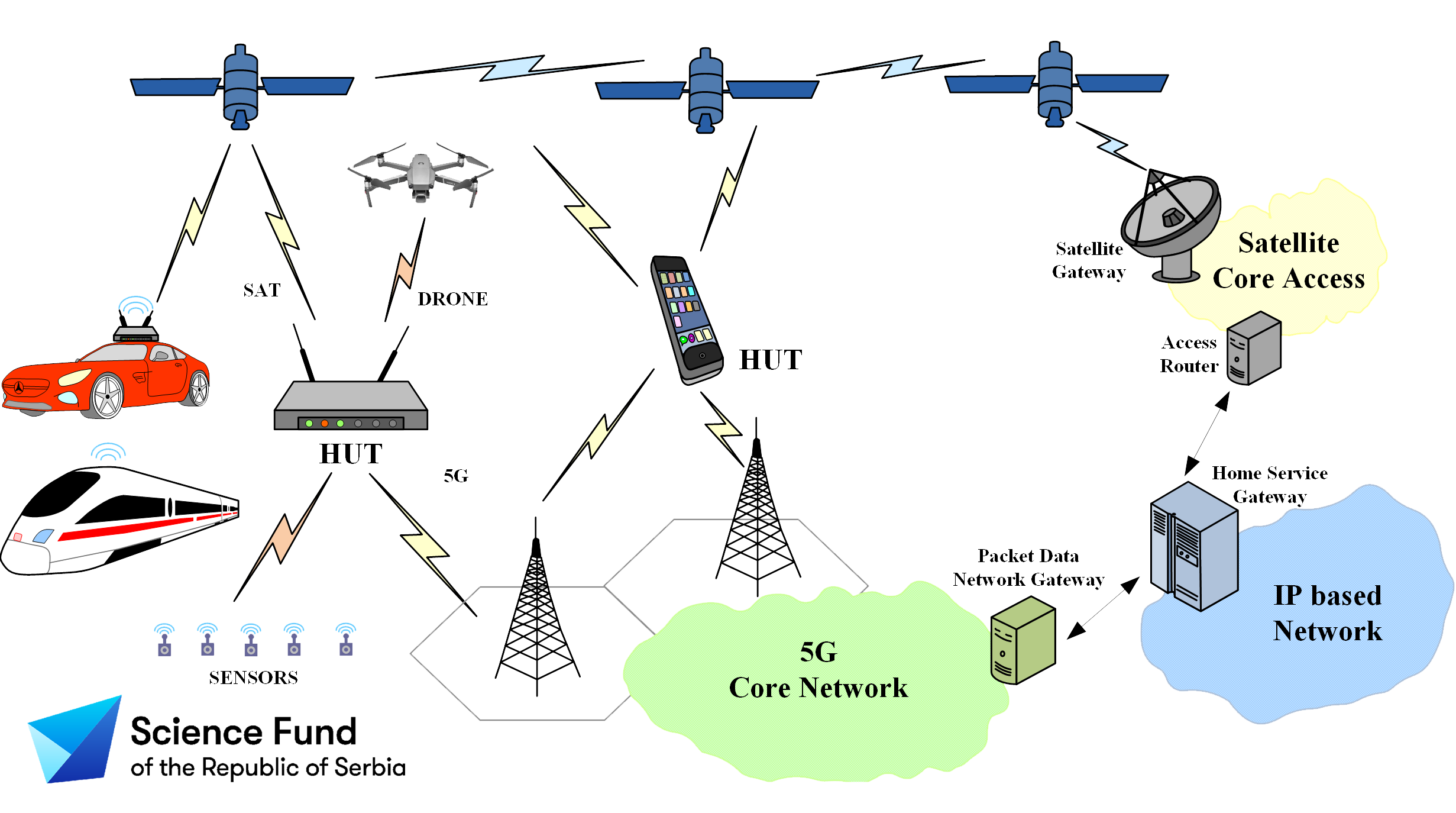
hi-STAR
Funded by: Science Fund
Start date: Jan. 2022
Project lead: dr. Predrag Ivaniš, Telecommunications department
PARTICIPANTSHybrid Integrated Satellite and Terrestrial Access Network (hi-STAR) is a project whose main objective is to develop and implement in hardware a high-performance hybrid access terminal with the ability to steer user traffic between 5G and LEO satellite links, with aid of artificial intelligence methods.

Power efficient, adaptive, multiprocessor and multisensory systems
Funded by: Ministry of Science, Education and Technological Development
Start date: Mar. 2011
Project lead: dr. Ivan Popović, Electronics department
PARTICIPANTS
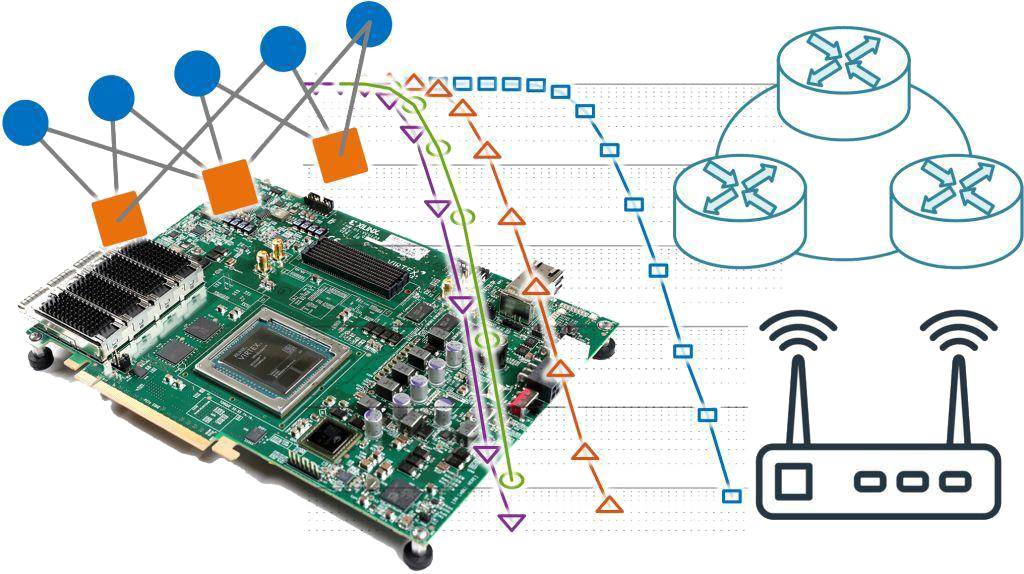
Development of wideband modem and internet switch
Funded by: NTWINE, Tannera
Time span: Apr. 2017 - Dec. 2020
Project lead: dr. Lazar Saranovac, SPARC group
LEAD TEAM
The project is focussed on hardware acceleration of high-end telecommunication systems. The
project is divided to two major parts:
1) Physical layer hardware implementations for satellite DVB-S2(x) and terrestrial 5G NR
standards
The major research was focussed on novel hardware architectures for quasi-cyclic LDPC
decoders and encoders, as well as modulator and demodulator.
2) Development of high-end internet switch
The major research was on development of novel architecture and implementation of a
spaceborne router integrated on an FPGA. The router supported high bit-rate satellite links:
10 Gbps satellite-to-ground links and 100 Gbps intersatellite links.
#Publications: 6
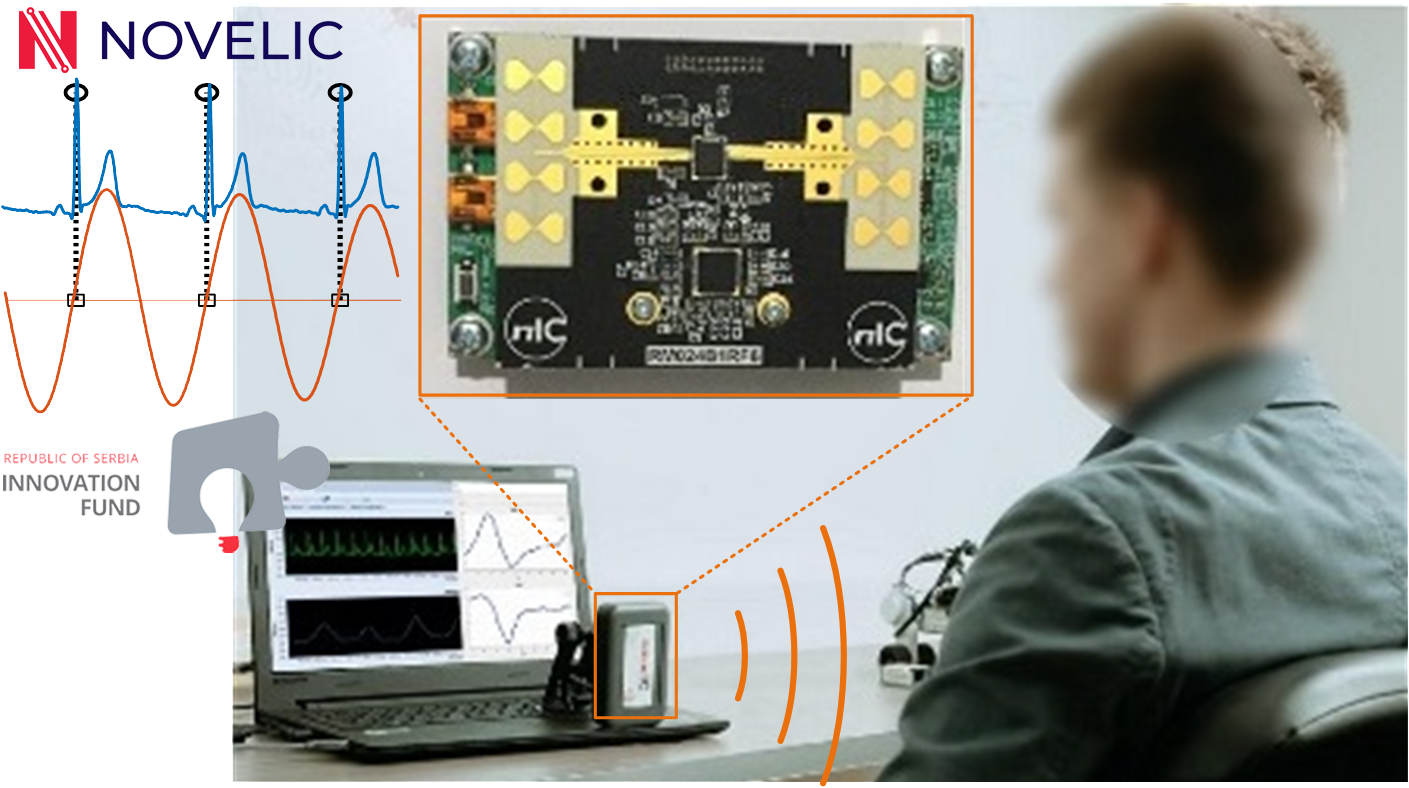
HUDES - Human Detection Sensor
Funded by: Innovation Fund, Novelic
Time span: Feb. 2017 - Feb. 2019
Project lead: dr. Milica Janković, BMIT group
PARTICIPANTS
The project revolves around a novel, unique, low cost and miniature contactless human
detection sensor module, based on radar sensing and advanced detection of human vital
signs and presence. This innovation will find its primary application in the transportation
and auto industry, but can also be applied to various other industries and service sectors,
ranging from entertainment venues such as cinemas and theaters to smart furniture in modern
business environments.
We participated in development of novel algorithms for the estimation of heart rate using
24-GHz continuous-wave Doppler radar with quadrature architecture. The developed algorithms
performed in real-time with high-accuracy estimation of beat-to-beat intervals (BBIs) and
heart rate variability (HRV) features.
#Publications: 3

Computational photography algorithms and architectures
Funded by: Intel corporation
Time span: Sep. 2011 - Sep. 2016
Project lead: dr. Lazar Saranovac, SPARC group
LEAD TEAMDevelopment of the image processing algorithms for enhancing image and video quality of mobile cameras. Main focus was on algorithms for low light imaging and high dynamic range imaging.
#Publications: 4
CONTACT
Address:
University of Belgrade - School of Electrical Engineering
Bulevar kralja Aleksandra 73
Office P-20 or 102v
Belgrade, Serbia
Phones:
+381 11 3218 365
+381 11 3370 167
Email:
sparc[AT]el[DOT]etf[DOT]rs


